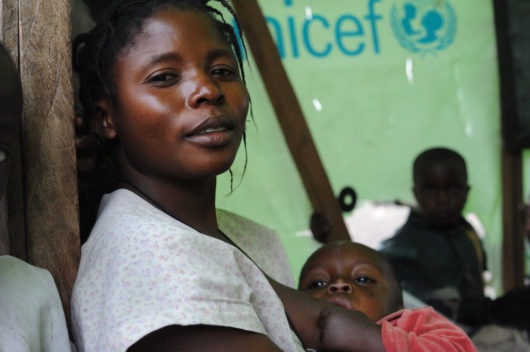Women in Government: Representation in Rwanda
 Rwanda has a higher percentage of representation of women in government than any country in the world. In 2017, there were 49 women in the lower house of parliament, which is more than half of its 80 seats, and 10 women in the upper house of parliament consisting of 26 seats. The high proportion of women in government came after the devastating Rwandan genocide of 1994, and the country has made significant strides since then.
Rwanda has a higher percentage of representation of women in government than any country in the world. In 2017, there were 49 women in the lower house of parliament, which is more than half of its 80 seats, and 10 women in the upper house of parliament consisting of 26 seats. The high proportion of women in government came after the devastating Rwandan genocide of 1994, and the country has made significant strides since then.
A Shift in Gender Representation
The genocide in Rwanda marked a change in gender representation because, after the violence had subsided, 70 percent of the surviving population was women. This was a result of the practice of killing men and allowing women to survive as sex slaves during the genocide. However, it was not only the new gender disparity that caused an increase in women’s roles in government, but the country also introduced quotas requiring 30 percent of candidates for public office to be women.
It is important to note that the Rwandan government decided to increase the representation of women in government through candidate quotas in political parties rather than seat reservations in parliament. According to a study by Mala Htun published in Perspective on Politics, “Women and men belong to all political parties; members of ethnic groups, by contrast, frequently belong to one only.” By using quotas, the Rwandan government is acknowledging the bipartisan nature of women in government.
Therefore, the most efficient way to establish a higher representation of women in government is to promote their representation within political parties because they are a cross-cutting group, meaning that women have an active political presence across the political spectrum. This thoughtful approach to increasing women’s representation in the Rwandan government has resulted in record-breaking numbers of women becoming involved in political life in Rwanda and setting positive examples for young girls throughout the country.
The Difficulties Women in Government Face
The presence of women in such politically powerful positions in Rwanda has not come without difficulties. Many women face backlash from their families or husbands for sacrificing domestic work in order to become political leaders. In fact, Berthilde Muruta, Executive Secretary in the Rubavu District noted that “there are people who think that we come to meet men, or for other business, which makes it hard to be trusted by our husbands.” Additionally, female politicians in Rwanda are oftentimes not seen as equals to the men in similar positions.
According to Claudette Mukamana, a District Vice Mayor, “When people see you holding any of those [elected] positions as women, the very first question asked by everyone is: Will she be able to perform her duties? Is she capable of holding such a position?” Despite these difficulties, the presence of so many women in the Rwandan government has resulted in the passing of several key pieces of legislation to improve the lives of women and girls throughout the country.
These reforms include legislation to alter the Civil Code to allow women to have equal inheritance rights as men, equal pay, consequences for gender discrimination and harassment in the workplace and further prevention and consequences for violence against women and children. In addition, with 7 of the 14 supreme court justices in Rwanda now being women, new laws were passed requiring that both boys and girls must attend primary and secondary school.
Areas to Improve
A lot still needs to change in regards to the perception of women’s roles in society. Furthermore, there is still more progress to be made, especially in terms of violence against women. The Rwandan government performed a study that showed that two out of every five women ages 15 and older had been physically abused at least one time in their lives. As more women are elected to office, hopefully, more people will change their perspective in these areas and these statistics will represent that improvement.
The representation of women in the Rwandan government has led to significant advancements for the rights of women and girls throughout the country. Globally women only hold 21.9 percent of all elected seats in government. Promoting the equality of men and women in political positions in Rwanda and around the world is integral to solving many of the issues governments face. Although the system is not yet perfected, the world could learn a lot about the importance of women in government from Rwanda.
Photo: Flickr
